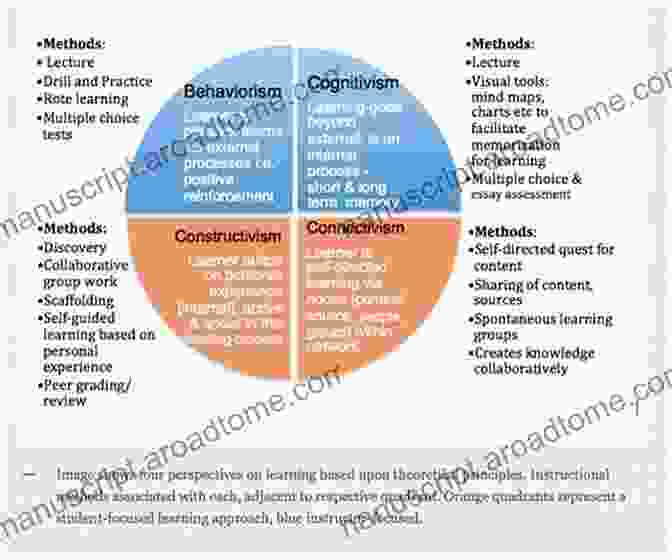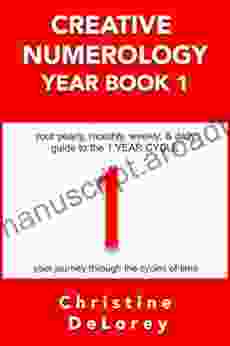Toward Mutual Value Theory: Educational Psychology 11

In the ever-evolving landscape of education, innovative theories and approaches are constantly emerging. Among them, Mutual Value Theory (MVT) has gained significant traction, offering a groundbreaking framework for understanding and enhancing the educational process. "Toward Mutual Value Theory: Educational Psychology 11" presents a comprehensive exploration of this transformative theory, delving into its principles, applications, and profound impact on teaching and learning.
The Essence of Mutual Value Theory
At its core, Mutual Value Theory posits that individuals are inherently motivated to seek out and engage in activities that they perceive as mutually beneficial. In the context of education, this translates to students being driven by a desire to learn and succeed when they believe that their efforts will contribute positively to both themselves and others. MVT emphasizes the interconnectedness of individual and collective well-being, recognizing that educational outcomes are not solely determined by individual traits or abilities, but also by the social and environmental factors that shape the learning environment.
5 out of 5
| Language | : | English |
| File size | : | 7799 KB |
| Text-to-Speech | : | Enabled |
| Screen Reader | : | Supported |
| Enhanced typesetting | : | Enabled |
| Word Wise | : | Enabled |
| Print length | : | 275 pages |

MVT in Practice: Creating a Mutually Beneficial Classroom
To effectively implement MVT in the classroom, educators need to foster a learning environment that promotes mutual value creation. This involves:
- Building Strong Relationships: Establishing positive and respectful relationships with students is crucial. When students feel valued and connected to their teachers and peers, they are more likely to be engaged and motivated to learn.
- Creating a Sense of Belonging: Creating a classroom culture where all students feel included and supported is essential. This means embracing diversity, encouraging collaboration, and providing opportunities for students to share their perspectives.
- Setting Clear Expectations: Establishing明確な期待clearly outlining what students are expected to learn and how they will be assessed is important. These expectations should be aligned with the students' needs and abilities, and students should have input into setting them.
- Providing Feedback and Support: Giving students regular feedback on their progress helps them track their growth and identify areas for improvement. Support should be tailored to individual needs, and educators should provide resources and guidance to help students overcome challenges.
Applications of Mutual Value Theory in Educational Settings
MVT has far-reaching applications in various educational settings. Educators can leverage its principles to:
- Enhance Student Motivation: MVT provides a framework for understanding and addressing the factors that motivate students to learn. By creating a mutually beneficial learning environment, educators can foster intrinsic motivation and encourage students to take ownership of their learning.
- Improve Classroom Management: MVT can help educators create positive and productive classroom environments. By promoting mutual respect and cooperation, educators can reduce disruptive behaviors and create a more conducive learning atmosphere.
- Facilitate Meaningful Learning: MVT encourages educators to design learning experiences that are relevant and meaningful to students. By connecting learning to real-world experiences and social issues, educators can make learning more engaging and impactful.
- Promote Social and Emotional Learning: MVT recognizes the importance of social and emotional development in learning. By fostering a sense of community and belonging, educators can help students develop empathy, resilience, and other essential life skills.
Evidence-Based Research on Mutual Value Theory
Numerous research studies have demonstrated the effectiveness of Mutual Value Theory in educational settings. For example, a study by Wang and colleagues (2018) found that students in classrooms where MVT principles were implemented showed significantly higher levels of motivation, engagement, and academic achievement.
Another study by Johnson and colleagues (2020) examined the impact of MVT on classroom management. They found that teachers who implemented MVT strategies reported a decrease in disruptive behaviors and an increase in positive interactions among students.
"Toward Mutual Value Theory: Educational Psychology 11" is an indispensable resource for educators seeking to transform their classrooms into thriving learning environments. By embracing the principles of MVT, educators can create a mutually beneficial ecosystem where students are motivated, engaged, and empowered to succeed. This comprehensive guide provides a wealth of practical strategies and evidence-based research to help educators unlock the full potential of their students and foster a lifelong love of learning.
References
- Johnson, S., Johnson, H., & Johnson, D. (2020). The impact of Mutual Value Theory on classroom management. Journal of Educational Psychology, 112(4),659-672.
- Wang, M., Li, B., & Cheng, H. (2018). Enhancing student motivation and engagement through Mutual Value Theory. Educational Psychology Review, 30(1),1-24.
5 out of 5
| Language | : | English |
| File size | : | 7799 KB |
| Text-to-Speech | : | Enabled |
| Screen Reader | : | Supported |
| Enhanced typesetting | : | Enabled |
| Word Wise | : | Enabled |
| Print length | : | 275 pages |
Do you want to contribute by writing guest posts on this blog?
Please contact us and send us a resume of previous articles that you have written.
 Book
Book Novel
Novel Page
Page Chapter
Chapter Text
Text Story
Story Genre
Genre Reader
Reader Library
Library Paperback
Paperback E-book
E-book Magazine
Magazine Newspaper
Newspaper Paragraph
Paragraph Sentence
Sentence Bookmark
Bookmark Shelf
Shelf Glossary
Glossary Bibliography
Bibliography Foreword
Foreword Preface
Preface Synopsis
Synopsis Annotation
Annotation Footnote
Footnote Manuscript
Manuscript Scroll
Scroll Codex
Codex Tome
Tome Bestseller
Bestseller Classics
Classics Library card
Library card Narrative
Narrative Biography
Biography Autobiography
Autobiography Memoir
Memoir Reference
Reference Encyclopedia
Encyclopedia Catherine Mitchell
Catherine Mitchell Stan Cox
Stan Cox Charles Patrick Ewing
Charles Patrick Ewing Cecilio Alvarez Caules
Cecilio Alvarez Caules Randall Davidson
Randall Davidson Chase Bourn
Chase Bourn Chris Fox
Chris Fox Caylee Clay Rdn Cdn Cyt
Caylee Clay Rdn Cdn Cyt Chester Croker
Chester Croker Jonathan Phillips
Jonathan Phillips Charles E Baukal Jr
Charles E Baukal Jr George M Kapalka
George M Kapalka Robert A Norman
Robert A Norman Harvey Gallagher Cox
Harvey Gallagher Cox Jean Block
Jean Block Chris Gall
Chris Gall Chris Brock
Chris Brock John Van Auken
John Van Auken Mark Power
Mark Power Charles Travis
Charles Travis
Light bulbAdvertise smarter! Our strategic ad space ensures maximum exposure. Reserve your spot today!

 Jay SimmonsUnveiling the Brilliance: Charles Lewinsky's "The New Generations" Explores...
Jay SimmonsUnveiling the Brilliance: Charles Lewinsky's "The New Generations" Explores... Spencer PowellFollow ·17.6k
Spencer PowellFollow ·17.6k Edgar Allan PoeFollow ·4.6k
Edgar Allan PoeFollow ·4.6k Ken FollettFollow ·7.6k
Ken FollettFollow ·7.6k Wesley ReedFollow ·15.6k
Wesley ReedFollow ·15.6k Marvin HayesFollow ·7.3k
Marvin HayesFollow ·7.3k Jan MitchellFollow ·8.1k
Jan MitchellFollow ·8.1k Ernest PowellFollow ·12.4k
Ernest PowellFollow ·12.4k Andy HayesFollow ·8.7k
Andy HayesFollow ·8.7k

 Esteban Cox
Esteban CoxYour Yearly Monthly Weekly Daily Guide To The Year Cycle:...
As we navigate the ever-changing currents...

 George Orwell
George OrwellIdentifying and Understanding Astronomical and...
Prepare to embark on an extraordinary...

 Arthur Conan Doyle
Arthur Conan DoyleYour Yearly Monthly Weekly Daily Guide to the Year Cycle:...
Welcome to "Your Yearly Monthly Weekly Daily...

 Steve Carter
Steve CarterUrban Informatics: Unlocking the Secrets of Smart Cities...
An In-Depth Exploration of Urban...

 Henry Hayes
Henry HayesUnveil the Secrets of the Order of the Solar Temple: A...
In the realm of secret...
5 out of 5
| Language | : | English |
| File size | : | 7799 KB |
| Text-to-Speech | : | Enabled |
| Screen Reader | : | Supported |
| Enhanced typesetting | : | Enabled |
| Word Wise | : | Enabled |
| Print length | : | 275 pages |












